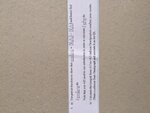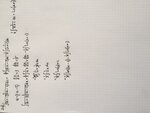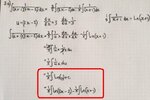Stewboi
Newbie level 1
Hi, I am in the first year of my higher national certificate in Electrical Engineering at college. This is a question from my integration assignment and is the final assignment of this maths unit. I have attempted the question as best I can but believe I am going wrong somewhere with my calculations because when I attempt to do part 3b I cannot get an answer. All and any advice is welcome.
This is the full question from the assignment;

I believe I have done the first part of question 3a and can be seen below;

Please advise me if I have gone wrong with my calculations at this point.
I then went on to the next part of question 3a and I have uploaded my attempt below;

Any advice is welcome. If you need the images to be bigger I can upload bigger ones but I decided to upload them slightly smaller to save on the size of the attachments. I do not know why they have been rotated when I have uploaded them but I can re-upload them if they are not readable.
Thank you in advance,
Stewart
This is the full question from the assignment;

I believe I have done the first part of question 3a and can be seen below;

Please advise me if I have gone wrong with my calculations at this point.
I then went on to the next part of question 3a and I have uploaded my attempt below;

Any advice is welcome. If you need the images to be bigger I can upload bigger ones but I decided to upload them slightly smaller to save on the size of the attachments. I do not know why they have been rotated when I have uploaded them but I can re-upload them if they are not readable.
Thank you in advance,
Stewart
